How can journalists, working in conditions of war, remain resilient? Why is it necessary to be able to notice their reactions in time, and how to distinguish the manifestations of PTSD? How to stabilize the psycho-emotional state, control yourself during panic attacks? A training retreat on psychological recovery during emergencies for representatives of the Journalists’ Solidarity Centers (JSCs) and local media workers was organized last Friday by the Vinnytsia Regional organization of the National Union of Journalists of Ukraine (NUJU) as part of a two-day working trip for employees of the JSC network to the Vinnytsia Region. Vinnytsia media workers and displaced journalists who found shelter in the region also participated in the training.
Tetiana Khrulenko, a crisis psychologist at the Main Department of the State Emergency Situations Service (SESS) in the Vinnytsia Region, and Oleksandr Hudilin and Hlib Lapikov, social workers at the Vinnytsia Psychological Support Center of the international humanitarian organization, Doctors Without Borders (or Médecins Sans Frontières, MSF), shared their knowledge and practical techniques.
The participants, together with Oleksandr Hudilin, analyzed what PTSD (post-traumatic stress disorder) is, how it manifests itself, and what consequences it can have.
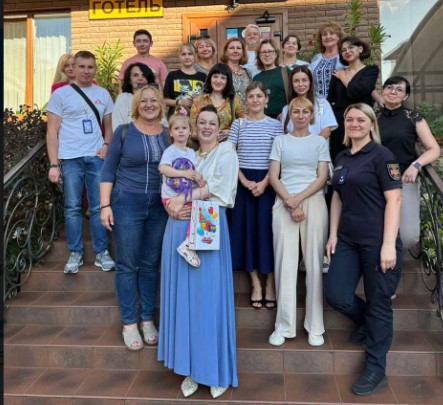
The conversation then turned to the topic of panic attacks. Hlib Lapikov, in particular, noted that panic attacks often occur when a person is worried about something or has experienced a difficult or stressful experience. Usually, the attack lasts from 10 to 30 minutes, after which it disappears. But there are certain exercises that help reduce anxiety – these are breathing techniques, mental body scanning, and the “grounding” exercise through the activation of the senses: see and name five objects, touch four things, hear three sounds, smell two things, and taste one thing. These simple steps help distract from tension and bring yourself back to the “here and now.”
“Such exercises need to be practiced regularly,” the psychologist emphasized. “They should become skills, then in a critical situation, they will be effective.”
Crisis psychologist Tetiana Khrulenko also shared practical tools for maintaining emotional balance, self-help methods, and techniques for restoring internal resources with journalists. She spoke, in particular, about the technique of the “four elements” (earth, air, water, and fire), which she uses in her work to stabilize people’s psychological state:
“‘Ground’ the body, feel support, normalize breathing, control it, moisturize the mucous membranes, and replenish the water balance, switch attention, restore the ability to think and analyze – in conditions of stress and anxiety, this technique can be useful for both adults and children.”
In the backpack of a crisis psychologist of the SESS, various items can also help calm, stabilize, and distract.
“You can make warm tea or coffee, cover the person with a blanket, offer an icon or rosary beads if they want to pray,” said Ms. Tetiana. “I always have children’s toys, coloring books, even cigarettes for smokers with me.”
At the same time, everyone’s internal resources are exactly what support them in difficult moments. Israeli psychologist Mooli Lahad created the BASIC Ph stress management model, which describes six channels – emotions, body, creativity, knowledge, relationships, and faith – that help you cope with stress, develop psychological resilience, and help others without exhausting yourself.
Journalist Liana Okhrymenko previously attended similar psychological support classes for media professionals in Dnipro. She is convinced that everyone needs the skills to restore calm and clarity in the midst of anxiety. In addition, this is an opportunity to take something personally important with you:
“I wrote down this practical advice – to have a lollipop in a wrapper with you. You can sort it into colors, rustle the wrapper, smell and taste it, that is, use all your senses. And this helps to “return yourself to reality” in a moment of anxiety.”
“For journalists who work every day in the realities of war, come to the places of impact together with rescuers, talk about the consequences, about the events in the country, such psychological measures are very important!” added the coordinator of the Dnipro JSC, Nataliya Nazarova. “Our colleagues are at risk today. So, such meetings help to maintain mental health, remind about resource recovery.”
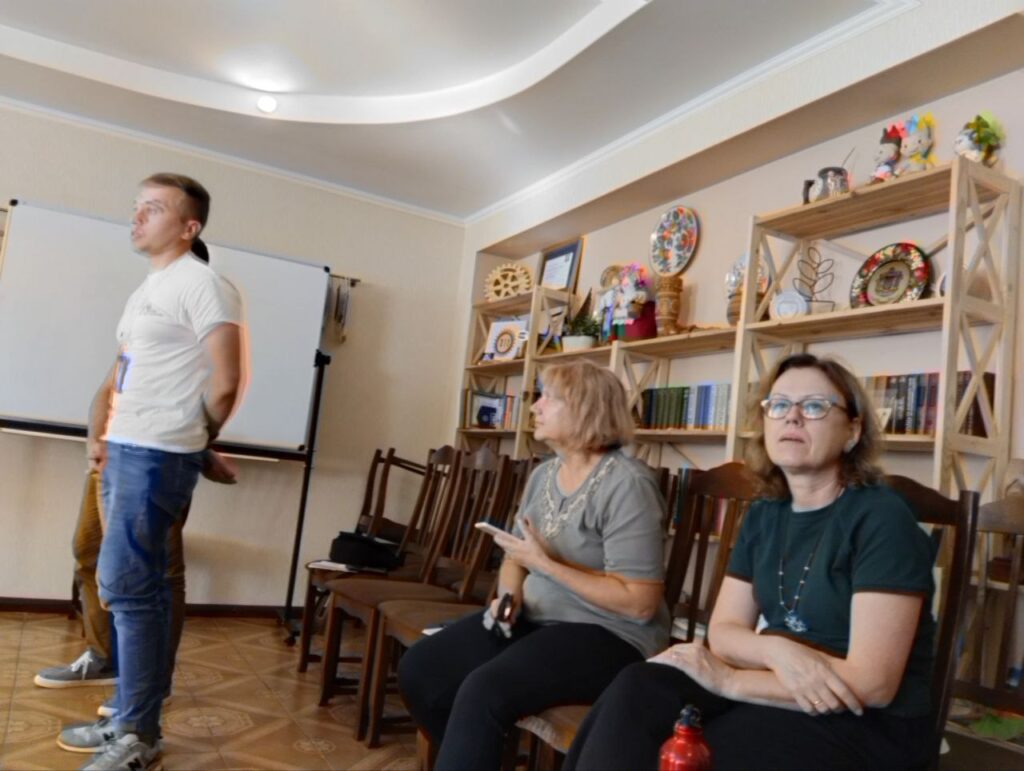
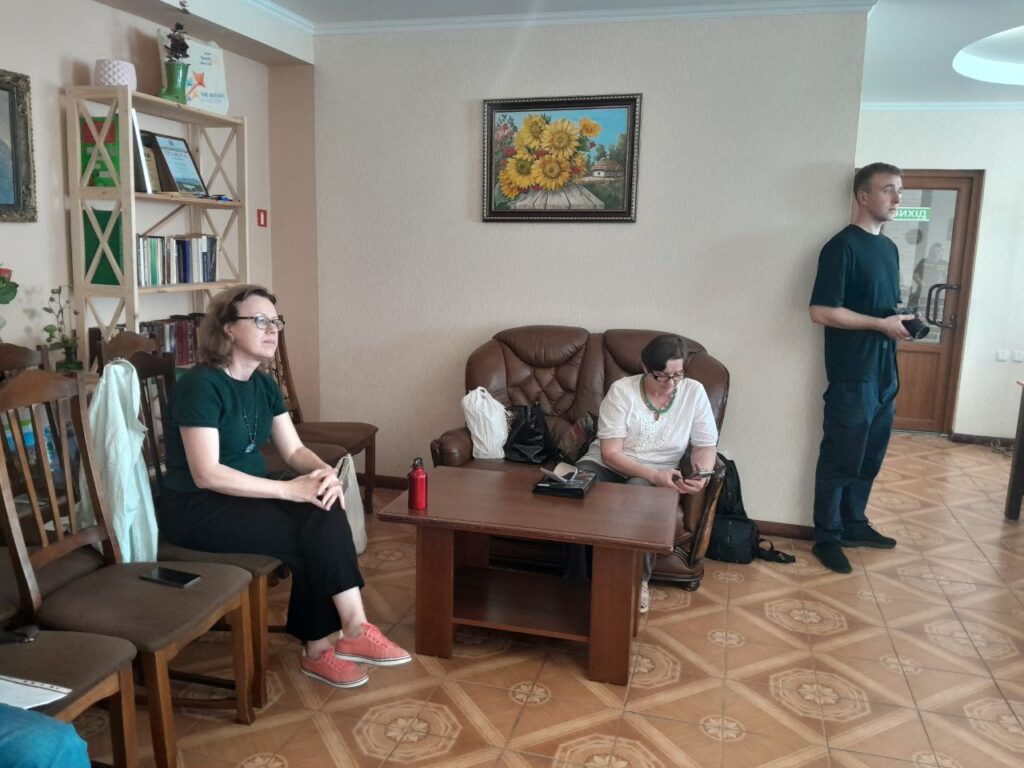
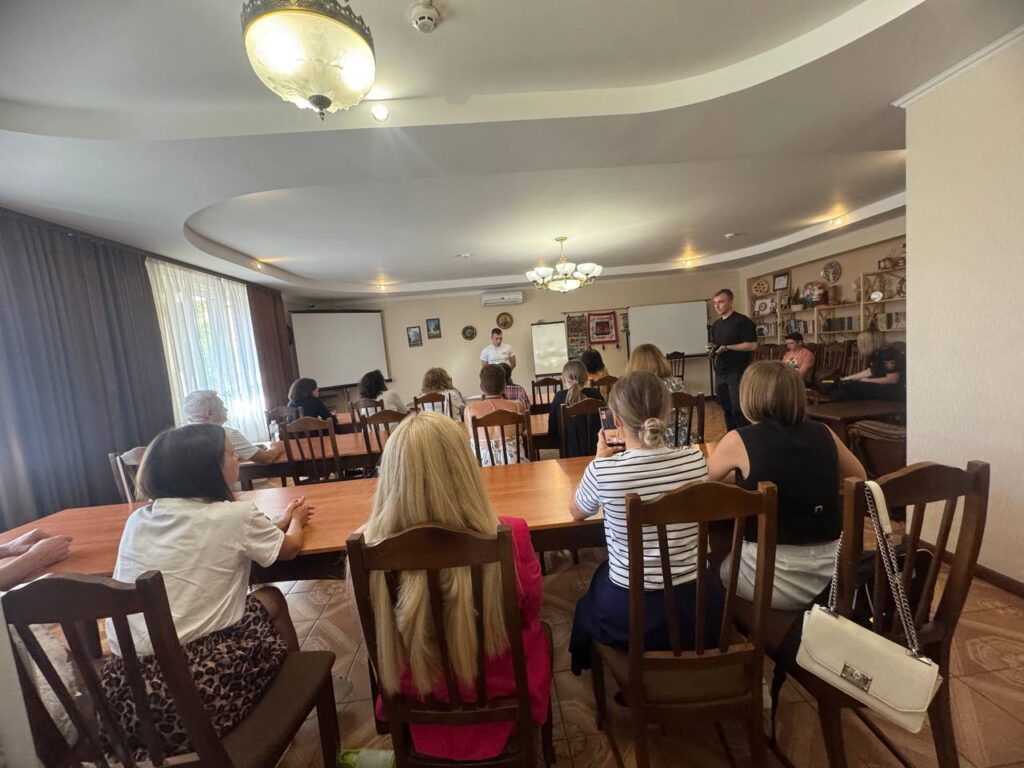
The event was organized by the network of NUJU‘s JSCs and the Vinnytsia regional organization of the NUJU with the support of the Swedish human rights organization Civil Rights Defenders.
The network of Journalists’ Solidarity Centers is an initiative of the National Union of Journalists of Ukraine, implemented in collaboration with the International and European Federations of Journalists and UNESCO, and with the support of the People of Japan. Our primary goal is to assist media professionals working in Ukraine during the war. The Centers are active in Kyiv, Kharkiv, Zaporizhzhia, Dnipro, Lviv, and Ivano-Frankivsk. The project is part of UNESCO’s broader efforts to support the Safety of Journalists and Freedom of Expression in Ukraine.
NUJU Information Service

 THE NATIONAL UNION OF
JOURNALISTS OF UKRAINE
THE NATIONAL UNION OF
JOURNALISTS OF UKRAINE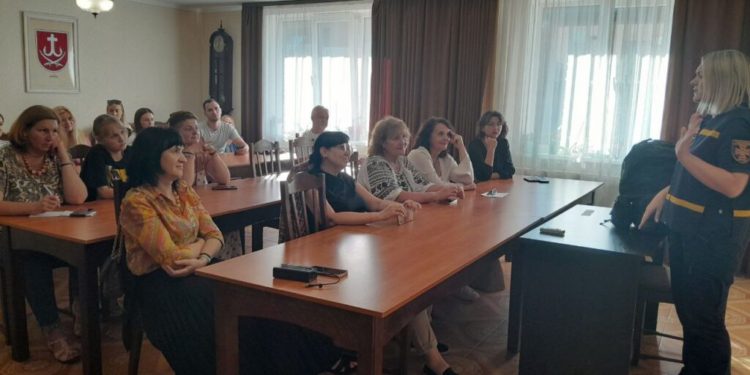
















Discussion about this post